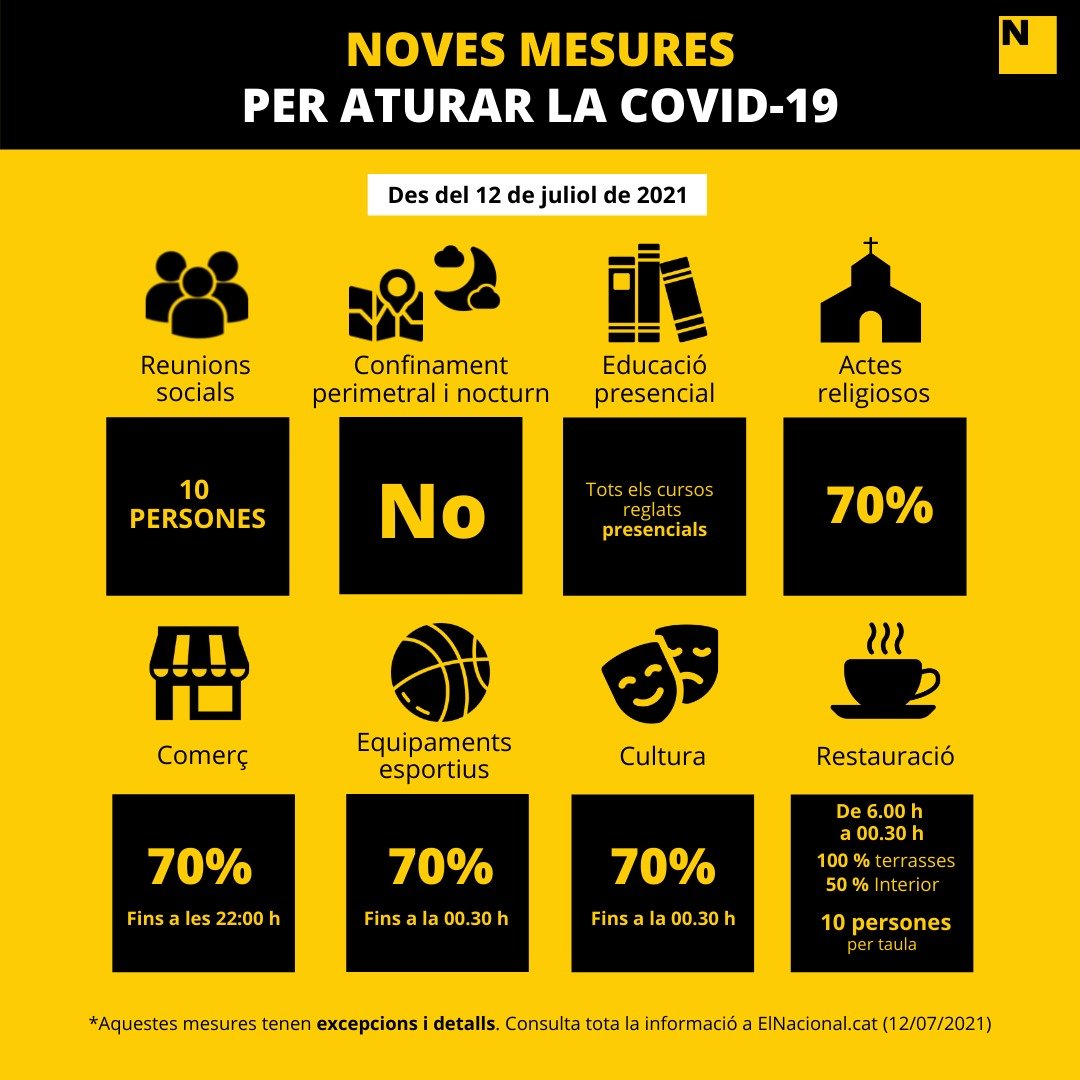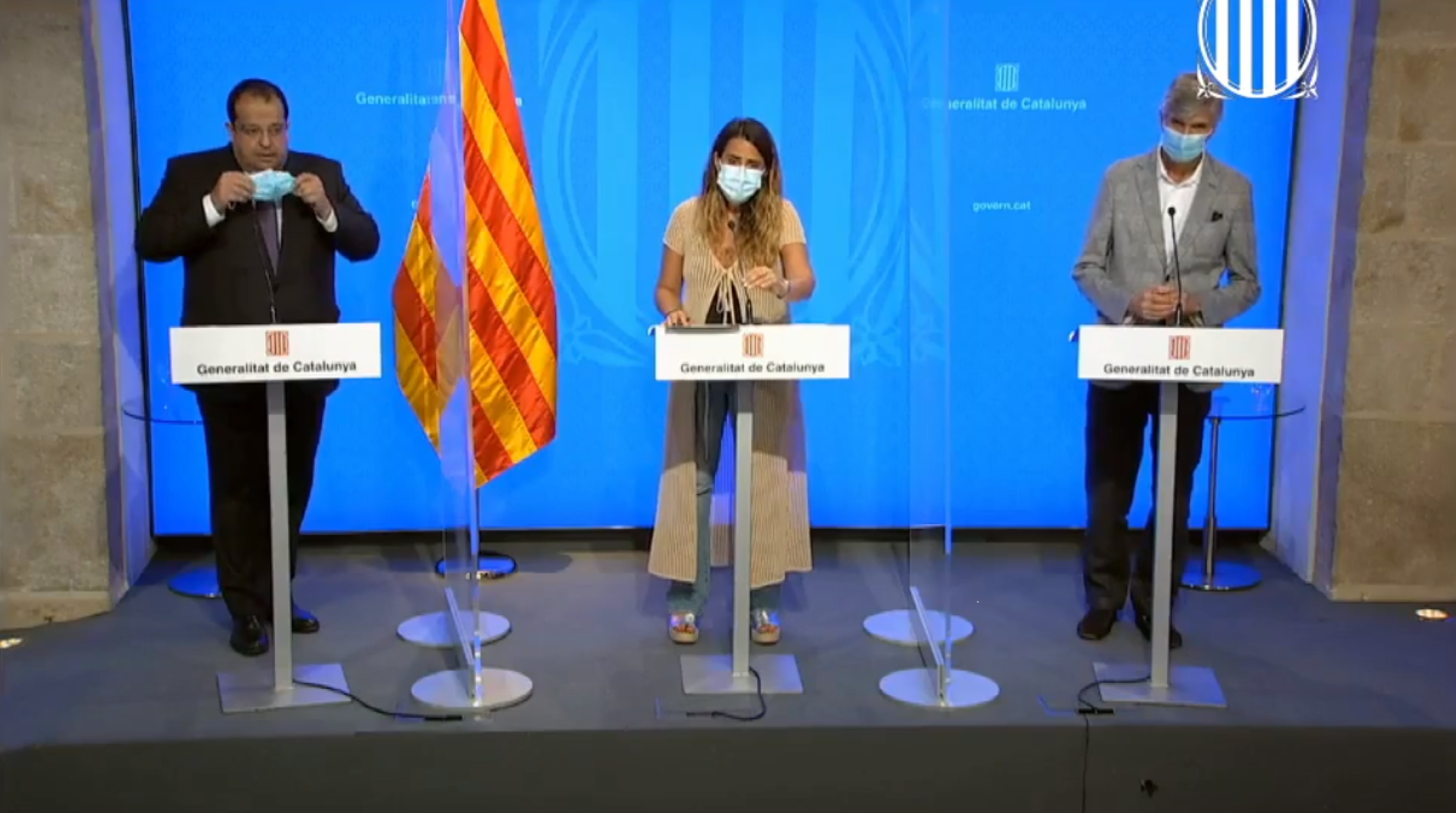"The numbers are terrible," said Catalan government spokesperson Patrícia Plaja, just before announcing the measures established by the executive's Procicat committee, chaired by president Pere Aragonès. In fact, the committee was still meeting, finalizing some details when Plaja and the Catalan ministers of health, Josep Maria Argimon, and interior, Joan Ignasi Elena, appeared.
The measures will be aimed at limiting mobility and contacts, and the main focus will be on ending all evening activities nightly at 12:30am - half past midnight. Activities of all kinds. Both home deliveries, and cultural and social events. As for cultural events, from now on, audiences must be entirely seated. The measure directly affects summer festivals, meaning a major change from the formula they have used so far, as in the case of Canet Rock and Cruïlla.
City councils are also being asked to restrict access to all kinds of public spaces such as parks and beaches where gatherings can be held from 12:30am to 6:00am.
Gatherings will have a maximum of 10 people, unless all those present are from the same cohabitation bubble. The Procicat committee has set an occupancy of 70% of the normal capacity for weddings, funerals or religious acts in churches. As for sharing tables in restaurants, the maximum will now be 6 diners per table inside and 10 outside.
In addition, eating and drinking in public places will be banned. And in terms of the density allowed in any space, a minimum of 2.5 square metres per person is established. Thus, both indoor and enclosed spaces, as well as outdoor spaces, will have to recalculate the number of people they can accommodate.
The new measures will come into force as soon as possible, "tomorrow or the day after", said the minister Elena. Judicial approval is required for the measure restricting group sizes.

Finding a balance
The Catalan interior minister remarked that the measures are aimed at "guaranteeing a balance between economic and social activity and emotional health". Joan Ignasi Elena called on the public to make one more effort: "We have come a long way during this year and a half, an extraordinary path in which there has been magnificent restraint and responsibility by citizens and public services, but it is necessary to make another effort".
Health minister Josep Maria Argimon admitted that "he thought there would be a rise but never such an explosion of cases". And he added that "we will have high incidence rates for weeks." Of every 100 positive cases, 1% end up in hospital. There are currently 1,091 people hospitalized in Catalonia, of whom 209 are in intensive care.
On vaccination, the minister also warned that the number of vaccine doses that will arrive from tomorrow will be less than the figure up till now. In recent weeks, 700,000 vaccine doses have arrived each week. This week, 500,000 jabs will be administered to reach a total of 8 million doses that have been given in Catalonia.
According to Argimon there has been an "explosion of cases in a very few days". That is why both the government spokesperson and the two ministers reiterated that "it is necessary to reduce social interaction".
Curfew: not now but under consideration
For now, a return to a night-time curfew has been ruled out.
The situation is not the same as that of a year ago when it was applied, Argimon explained. However, president Pere Aragonès has requested a detailed report in order that, "if the time comes, a new curfew could be applied," said Patricia Plaja.

